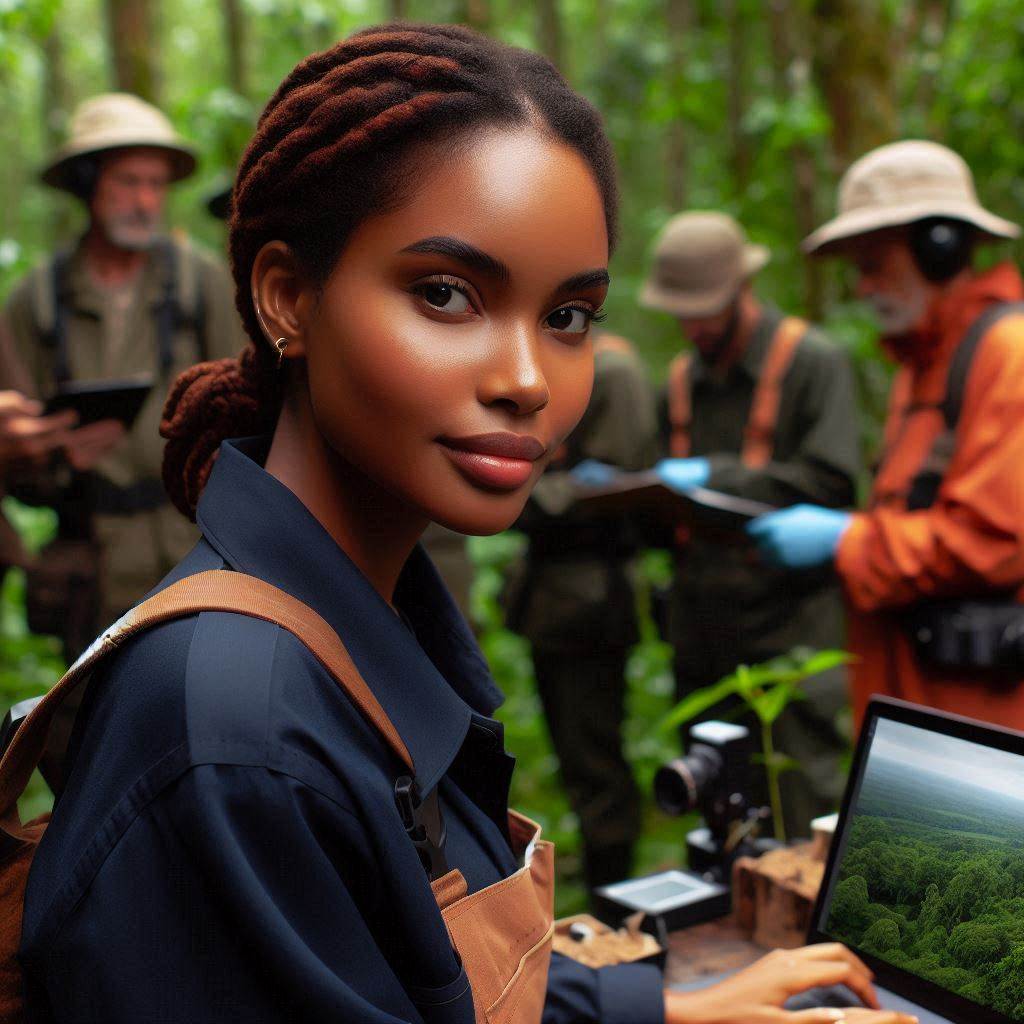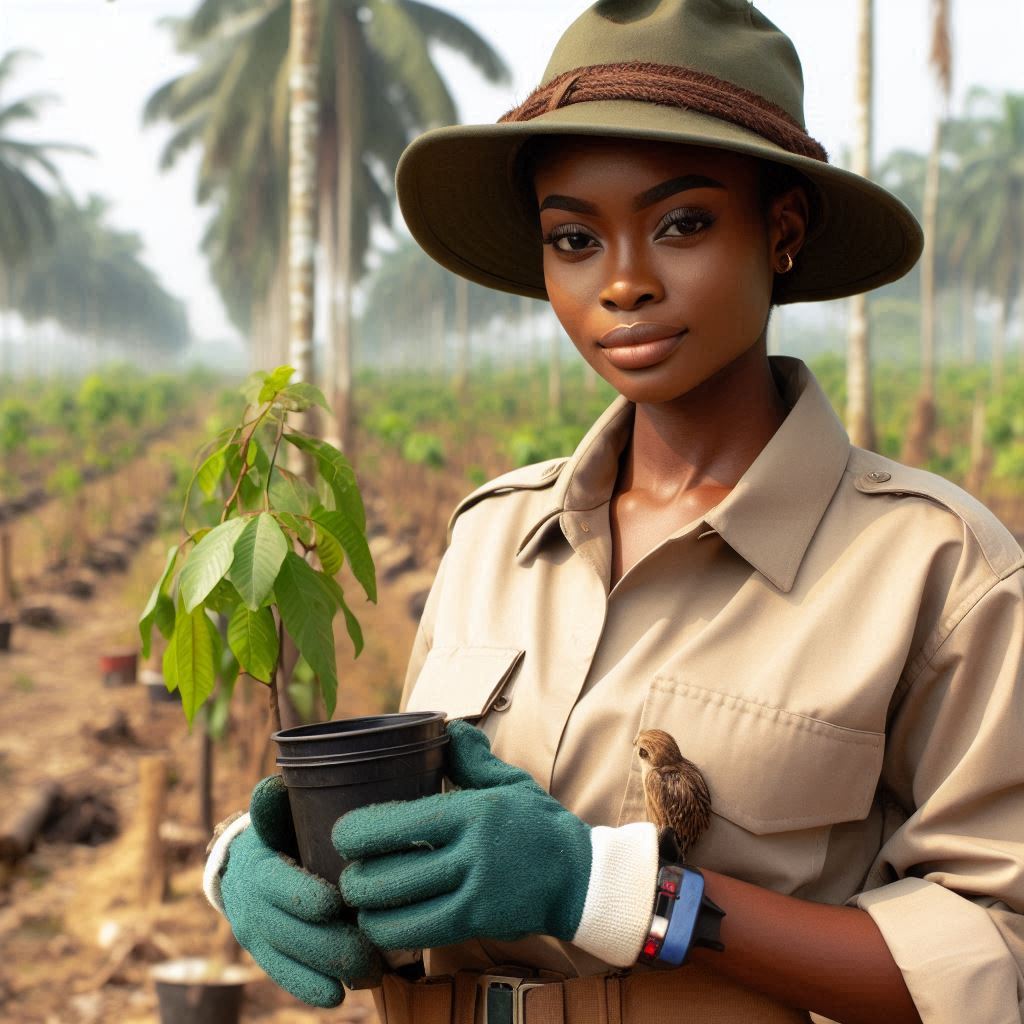Introduction
Wildlife management in Nigeria faces significant challenges such as poaching, habitat loss, and limited resources.
International collaboration is essential in addressing these issues.
By partnering with global conservation organizations, Nigeria can leverage expertise, funding, and innovative strategies to enhance wildlife protection.
International collaboration brings diverse perspectives and resources, fostering comprehensive approaches to conservation.
It enables the sharing of best practices, cutting-edge technologies, and facilitates capacity building through training programs.
These efforts lead to improved biodiversity conservation, strengthened enforcement mechanisms, and increased community engagement.
Basically, international collaboration is vital for effective wildlife management in Nigeria.
By working together with global partners, Nigeria can tackle the complex challenges of wildlife conservation more efficiently and sustainably.
This collaborative effort helps preserve the country’s rich biodiversity and promotes sustainable development, ensuring a thriving natural heritage for future generations.
Historical background of wildlife management in Nigeria
Nigeria is a country with a rich biodiversity, encompassing diverse ecosystems and a wide variety of plant and animal species.
The history of wildlife management in Nigeria can be traced back to the colonial era when the British colonial administration established game reserves and national parks to protect wildlife populations from overexploitation for sport hunting and agricultural expansion.
These protected areas were primarily managed for the benefit of colonial officials and tourists, with little consideration for the rights and needs of local communities who depended on wildlife resources for their livelihoods.
Challenges faced in the past
- Lack of adequate funding and resources to effectively manage protected areas
- Weak legal frameworks and enforcement mechanisms to combat poaching and illegal wildlife trade
- Limited capacity and expertise among wildlife management agencies to implement conservation programs
The past approach to wildlife management in Nigeria has led to a decline in wildlife populations, loss of habitat, and conflicts between conservation objectives and the socio-economic needs of local communities.
In recent years, there has been a growing recognition of the need for international support to improve wildlife management practices in Nigeria to address these challenges and promote sustainable conservation efforts.
The need for international support to improve wildlife management practices
- Capacity building and training: International collaboration can help build the capacity and expertise of Nigerian wildlife management agencies through training programs, technical support, and knowledge exchange opportunities.
- Funding and resources: International partnerships can provide financial support and resources to improve the management of protected areas, invest in conservation projects, and enhance law enforcement efforts to combat poaching and illegal wildlife trade.
- Research and data sharing: Collaborating with international organizations and research institutions can facilitate the exchange of scientific knowledge, research findings, and best practices in wildlife conservation to inform evidence-based decision-making and policy development.
- Community engagement and sustainable development: Engaging local communities in conservation efforts and promoting sustainable livelihood opportunities can help mitigate human-wildlife conflicts, address the socio-economic needs of communities, and build support for wildlife conservation initiatives.
By fostering international collaboration in wildlife management, Nigeria can benefit from the collective expertise, resources, and support of the global conservation community to address the challenges facing its wildlife populations and natural ecosystems.
Together, through shared goals and coordinated efforts, we can work towards a future where wildlife thrives, ecosystems are protected, and people live harmoniously with nature.
Read: Traditional vs Modern Horticulture in Nigeria
Current status of wildlife conservation efforts in Nigeria
Overview of Existing Conservation Projects and Initiatives
Nigeria boasts diverse wildlife and ecosystems, but conservation faces many challenges. Various projects and initiatives aim to protect this rich biodiversity.
The Nigerian government, in collaboration with local and international NGOs, has launched numerous conservation programs. Notable among these are the efforts in national parks such as Yankari Game Reserve, Cross River National Park, and Gashaka-Gumti National Park.
These parks focus on protecting endangered species like elephants, gorillas, and chimpanzees.
Additionally, initiatives like the Nigeria-Cameroon Chimpanzee Corridor Project aim to create wildlife corridors to facilitate safe animal movement. Anti-poaching units operate in many regions, employing modern technology and traditional methods to combat illegal hunting.
Community-based conservation programs also play a crucial role. These initiatives involve local communities in wildlife management, fostering sustainable practices and creating economic incentives for conservation.
However, these efforts face significant obstacles. Poaching, habitat destruction, and human-wildlife conflict persist, threatening wildlife populations.
Inadequate funding and limited resources further hinder effective conservation action. Despite these challenges, dedicated conservationists continue to strive for meaningful progress.
Areas Where International Collaboration Can Have the Most Impact
International collaboration can significantly bolster Nigeria’s wildlife conservation efforts. One critical area is funding. International organizations and governments can provide financial support to sustain and expand existing conservation projects.
Enhanced funding can enable the hiring of more rangers, purchase of advanced equipment, and implementation of community development programs.
Capacity building is another vital area for international collaboration. Training local conservationists in modern techniques and best practices can improve the effectiveness of conservation efforts.
International experts can offer workshops, seminars, and hands-on training sessions. This knowledge transfer empowers local teams to manage wildlife populations more effectively and sustainably.
Technological support is also crucial. Advanced technologies like GPS tracking, drone surveillance, and data analytics can revolutionize wildlife monitoring and protection.
International partners can supply these technologies and train local personnel in their use. Enhanced monitoring capabilities can lead to more efficient anti-poaching operations and better wildlife management.
Read: Field Work & Practical Training in Nigerian Forestry Schools
Benefits of international collaboration in wildlife management
- Access to expertise and resources from other countries
- Increased funding opportunities for conservation projects
- Exchange of best practices and technology
Access to expertise and resources from other countries
International collaboration in wildlife management in Nigeria has numerous benefits that contribute to the overall success of conservation efforts.
By partnering with other countries, Nigeria can access a wealth of expertise and resources that may not be readily available domestically.
This exchange of knowledge and skills can greatly enhance the capacity of Nigerian wildlife managers to effectively protect and preserve their natural heritage.
Increased funding opportunities for conservation projects
Furthermore, international collaboration opens up increased funding opportunities for conservation projects in Nigeria.
Many foreign governments, non-profit organizations, and international agencies are willing to invest in wildlife management initiatives that have a global impact.
By working together with these external partners, Nigeria can secure the necessary financial support to implement critical conservation programs.
Exchange of best practices and technology
Another advantage of international collaboration is the exchange of best practices and technology. Different countries have varying approaches to wildlife management, and sharing these strategies can help improve the overall effectiveness of conservation efforts in Nigeria.
By learning from the experiences of other nations, Nigerian wildlife managers can adopt innovative techniques and tools to better protect their wildlife populations.
Therefore, international collaboration plays a vital role in wildlife management in Nigeria by providing access to expertise and resources, increasing funding opportunities, and facilitating the exchange of best practices and technology.
By working together with other countries, Nigeria can enhance its conservation efforts and ensure the long-term survival of its unique wildlife species.
Read: Horticultural Tools and Equipment in Nigeria

Case studies of successful international collaborations in wildlife management in Nigeria
Specific Projects That Have Made a Positive Impact
International collaborations have significantly bolstered wildlife management in Nigeria. One notable example is the Nigeria-Cameroon Chimpanzee Corridor Project.
This initiative aims to create safe passages for chimpanzees between protected areas in Nigeria and Cameroon. The project has successfully reduced human-wildlife conflict and habitat fragmentation, crucial for chimpanzee survival.
Another impactful collaboration is the partnership between the Nigerian Conservation Foundation (NCF) and the Royal Society for the Protection of Birds (RSPB).
They focus on protecting the critically endangered Cross River gorilla. Their joint efforts have led to increased patrols, enhanced community engagement, and better monitoring of gorilla populations, resulting in a decline in poaching incidents.
The WCS (Wildlife Conservation Society) also plays a significant role in Nigerian wildlife conservation. In collaboration with the Nigerian government, WCS has implemented various anti-poaching initiatives in Yankari Game Reserve.
These efforts have led to a significant reduction in elephant poaching and improved security for other wildlife species.
Another successful collaboration involves the Nigerian National Park Service and the German Development Bank (KfW). Their joint project focuses on the Gashaka-Gumti National Park, aiming to enhance biodiversity conservation and sustainable management.
This project has led to improved park infrastructure, increased ranger capacity, and better community relations.
The Key Factors That Contributed to Their Success
Several key factors have contributed to the success of these international collaborations. Firstly, effective funding is crucial.
Projects like the Nigeria-Cameroon Chimpanzee Corridor Project and the Gashaka-Gumti National Park initiative have received substantial financial support. This funding ensures the availability of necessary resources, from advanced equipment to adequate personnel.
Secondly, capacity building plays a vital role. Training local conservationists in modern techniques and best practices enhances the effectiveness of wildlife management.
For instance, the NCF-RSPB partnership includes regular workshops and training sessions for local rangers. This knowledge transfer empowers local teams and improves conservation outcomes.
Thirdly, community involvement is essential for the success of conservation projects. Engaging local communities fosters a sense of ownership and responsibility towards wildlife conservation.
The Nigeria-Cameroon Chimpanzee Corridor Project involves local communities in monitoring activities and provides alternative livelihood options. This approach reduces human-wildlife conflict and promotes sustainable practices.
Read: Scholarship and Funding Opportunities for Forestry Students in Nigeria
Challenges of international collaboration in wildlife management
- Cultural differences and communication barriers
- Legal and regulatory challenges
- Ensuring local community involvement and buy-in
International collaboration in wildlife management in Nigeria faces several challenges that must be addressed to ensure its success.
Cultural differences and communication barriers
Cultural diversity can create misunderstandings and hinder effective communication among international collaborators. Language barriers, different work ethics, and varying perceptions of wildlife conservation can impede progress.
It is crucial to promote cultural sensitivity, encourage open dialogue, and establish clear communication channels to bridge the gap between diverse stakeholders.
Legal and regulatory challenges
Navigating complex legal frameworks and regulatory requirements in Nigeria and partner countries poses a significant challenge to international collaboration in wildlife management.
Harmonizing laws, policies, and enforcement mechanisms is essential to ensure consistent and effective conservation efforts across borders. Developing mutual agreements and protocols can help streamline the process.
Ensuring local community involvement and buy-in
Engaging local communities in wildlife management initiatives is vital to the success of conservation efforts. However, achieving buy-in from diverse stakeholders with varying interests and priorities can be challenging.
Building trust, fostering partnerships, and empowering local communities through capacity-building programs can increase their participation and support for wildlife conservation projects.
Overall, addressing these challenges requires a collaborative approach that values inclusivity, transparency, and mutual respect among international partners.
By overcoming cultural, legal, and community-related obstacles, wildlife management in Nigeria can benefit from effective international collaboration.
Conclusion
In closing, international collaboration is crucial for effective wildlife management in Nigeria. By working together with other countries, Nigeria can leverage expertise and resources to address conservation challenges.
Collaborative efforts can help in enforcing policies, managing habitats, and combating poaching activities, ultimately safeguarding the country’s rich biodiversity.
It is important to emphasize the significance of long-term partnerships in sustaining wildlife populations and promoting ecological balance in Nigeria.
Importance of International Collaboration
International collaboration plays a key role in ensuring the long-term conservation of Nigeria’s wildlife by pooling resources and expertise from different nations.
These partnerships enhance conservation efforts, increase knowledge sharing, and facilitate the implementation of effective management strategies across borders.
Recommendations for Future Collaborations
Strengthen existing partnerships and initiate new collaborations with governments, NGOs, and research institutions to promote wildlife conservation in Nigeria.
Transform Your Career with Expert Guidance
Get personalized mentorship consulting that’s tailored to your unique path. Our expert advice is actionable and exclusive.
Get StartedImplement joint monitoring programs to track wildlife populations, habitat changes, and threats to biodiversity, enabling timely interventions.
Foster capacity building and training initiatives to empower local communities and conservationists in wildlife management practices and sustainable development.




